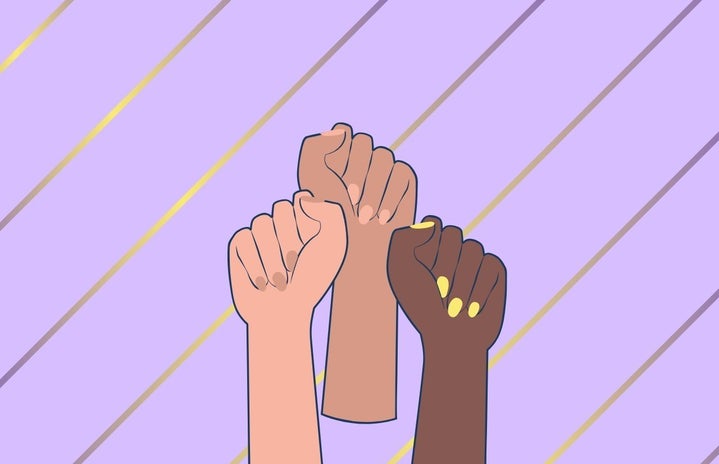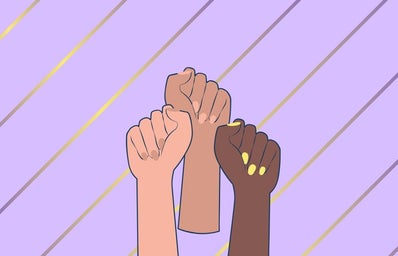There are of course thousands of other underrated feminists from whom we can learn so much, here are just four to get us started:
Barbara Smith
“It’s not possible to have post-revolutionary answers in a pre-revolutionary society, you can have vision for what it could be, and that is how it becomes what it can be.” – Barbara Smith.
Last year I watched a panel discussion between Barbara Smith, Charlene Carruthers and Reina Gossett (Black Feminism & the Movement for Black Lives), in which Smith said this quote. It stayed with me, and I think about it often when we scramble for answers to nay-sayers who doubt the changes called for by the Feminist and Black Lives Matter movements. It gives me comfort to think that having vision for change is sometimes enough, and knowing every detail of a post-revolutionary future is not possible.
But who is Barbara Smith?
Smith is an American lesbian feminist and socialist and a co-founder of the Combahee River Collective, a Black lesbian feminist organization. In an interview for Shondaland Smith said “I’m very happy to have been one of the members and co-founders of the Combahee River Collective because when we were doing the work […]we certainly weren’t thinking that 40 years into the future people would still be reading it, appreciating it, and using it as a catalyst for further social, economic, and racial and gender justice.” Smith was central in acknowledging lesbianism as a legitimate identity in need of support and appreciation from the feminist movement. Smith has always highlighted intersectionality as essential in feminism. In 1980 Smith and Audre Lorde, founded Kitchen Table: Women of Color Press, the first American publisher established by women of colour for women of colour (them.us).
Florynce Kennedy
“Don’t agonise, organise,” – Flo Kennedy
You might be familiar with the feminist legend Gloria Steinem, but less attention is often paid to her close friend and fellow activist Flo Kennedy. Steinem and Kennedy travelled together campaigning as a partnership. Of this time Steinem said to The Cut: “Whenever there was a press conference, reporters would ask me about women’s rights and Flo about civil rights. […] they shouldn’t have been dividing us — we were both there fighting for both issues.” According to Time magazine: Kennedy “made essential connections between the Black Power and feminist movements.” When with think of Steinem, we ought to think of Kennedy too. And when we think of feminism, we should think of civil rights too, as Kennedy demonstrated the issues are intrinsically linked. In her obituary in 2001 in The Guardian Margaret Busby wrote: “Kennedy’s mission was to tell it like it was, combined with advocacy of direct action. […] beyond sexism and racism, [Kennedy] also championed the civil liberties of homosexuals, prostitutes and other minorities.” Kennedy was famous for being loud, dressing boldly, and speaking up for herself and others. Maybe we all should be a little more like Flo.
Josephine Butler
I learned about Josephine Butler during my A-Level in history, and I remember thinking what a fascinating person she was. In an era when sex-workers were even more dehumanised and side-lined than they are today, Butler was a rare voice in promoting improving conditions for these, and all women. Butler campaigned against the Contagious Diseases Acts in 1869, which allowed police to stop any woman suspected of sex work in the street and force them into an extremely invasive ‘medical examination’. As a result of her work, in 1883 the acts were suspended and in 1886 they were repealed. Butler was also part of the group that convinced parliament to raise the age of consent to sixteen, from just thirteen as it was. Butler was one of the crucial forces in pressuring Cambridge to allow for degree-level education for women, which eventually led to the establishment of Newnham College. Butler campaigned for women’s suffrage; the abolition of child prostitution; and an end to human trafficking of young women and children into European prostitution. Butler shocked many people as a woman speaking up about these issues, and many thought it was not her place to do so, but the work she did paid off.
Grace Lee Boggs
“You don’t choose the times you live in, but you do choose who you want to be, and you do choose how you want to think.” – Grace Lee Boggs
Boggs was proudly a staunchly intersectional feminist, “heavily involved in the Civil Rights and Black Power movement” (orangemag.co). In Chicago in the 1930s and 40s Boggs joined the movement for tenants’ rights, and then socialist group the Workers Party. Boggs “focused on marginalized groups such as women and people of colour.” (AWTT). Boggs wrote several books, exploring how to build a sustainable social movement. Boggs’ involvement in organising the 1941 March on Washington taught her, “If you mobilize for mass action, you can change the world”.
Grace Lee Boggs lived to be 100 years old, you never know, maybe being a feminist is good for you…



